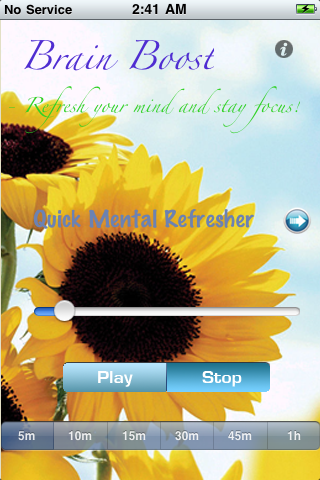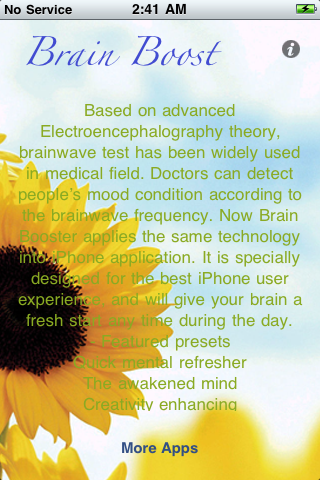Which Fish are Best For Your Brain?
 A reader asked, is fish really good for brain function and if so which fish is best? Some fish contain Omega 3 fatty acids which have been shown to improve memory function, increase serotonin (elevate mood) and support longer-lasting cells and more efficient messaging.
A reader asked, is fish really good for brain function and if so which fish is best? Some fish contain Omega 3 fatty acids which have been shown to improve memory function, increase serotonin (elevate mood) and support longer-lasting cells and more efficient messaging.
Mindpower Magazine has an interesting post claiming that Tilapa (a popular fish) has little brain benefit as it contains Omega 6 rather than Omega 3 fatty acids. Here is their list of the best brain fish:
- Salmon (wild salmon is preferred to the farmed variety)
- Mackerel
- Trout
- Whitefish
- Bluefin Tuna
- Sardines
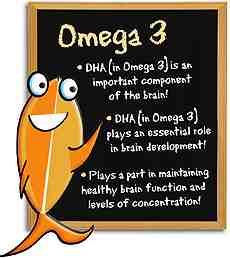 Jean Carper, author of Your Miracle Brain (discussed in another post) offers this list of Ten Fish with the Most Smart Fats:
Jean Carper, author of Your Miracle Brain (discussed in another post) offers this list of Ten Fish with the Most Smart Fats:
- Anchovy
- Bluefish
- Herring
- Mackerel
- Sablefish
- Salmon
- Sardines
- Lake Trout
- Tuna, bluefin
- Whitefish
There is considerable overlap in the two lists. Interested to hear from reader about their favorite brain fish or about which fish to avoid and why.
Sources:
Image of Fresh Fish Market and image of Omega-3 Poster
Categories: Cognitive Decline, Diet, Manage Emotions, Memory and Learning Tags:
Smart Phone Apps for Boosting Your Brain
A reader suggested Brain Boost, a new iPhone app.
.
Like to hear from readers that use this or other apps designed to improve cognitive performance.
Categories: Manage Emotions, Mental Focus, Software Tags: brain training, cognitive fitness, smart phone
Coffee: The Preferred Drink of High Performing Long-Lasting Brains
 In the Next Brain Blog we explore specific ideas and tools for improving cognitive performance and brain function. Low lying fruit or approaches that are simple, scientifically proven and easy to enact are of special interest.
In the Next Brain Blog we explore specific ideas and tools for improving cognitive performance and brain function. Low lying fruit or approaches that are simple, scientifically proven and easy to enact are of special interest.
Consider for example the simple act of drinking coffee or a relate caffeinated beverage. The scientific evidence for the brain-enhancing effects of coffee are really stacking up. A recent post on Psychology Today’s New Brain Blog, The Fountain of Youth in A Cup of Coffee – Ladies Only, reports:
“Coffee lovers appreciate the mood kick and mental boost a delicious cup of java provides. The enhanced learning, memory, and speed of information processing caffeine delivers has been well documented scientifically. New research published on-line in the current issue of the Journal of Alzheimer’s Disease, reports that coffee can also ward off some effects of aging on the brain. Previous research has shown that caffeine lessens the damage of Alzheimer’s disease caused by the toxic peptide that forms the senile plaques in brains of Alzheimer’s patients. This new study examined 641 elderly persons (over the age of 65) living in three cities in France, Bordeaux, Dijon, and Montpellier. Researchers found a relation between coffee consumption and prevention of cognitive deterioration including the loss of brain tissue in the elderly.”
The post goes on to discuss a recent brain scanning study that shows women (but not men) that drink 3-cups (but not less) of coffee per day lose less white matter after age 50. Thus the subtitle on the post – for women only. But the other studies and effects appear gender neutral.
Boosting energy, mood, memory, learning, processing speed as well as blocking aspects of cognitive decline… all from drinking coffee!
Coffee can have other effects as well. Any changes in diet, physical activity or lifestyle should be considered carefully.
Source: Image of Coffee Man
Categories: Cognitive Decline, Diet, Manage Emotions, Memory and Learning, Mental Focus Tags: mental energy
Want to Dramatically Improve Self-Control?
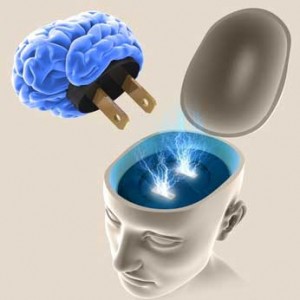 Then learn to manage your mental energy!
Then learn to manage your mental energy!
Science has made considerable inroads over the last few years defining, measuring and understanding the role mental energy plays in cognitive performance. Mental energy is defined as the combination of the ability to do mental work, the motivation for doing that work and your subjective feeling of fatigue. Key findings about mental energy include:
- We only have so much to use – it is a limited resource
- Exercising self-control or regulating our thoughts, emotions and behavioral responses burns considerable mental energy – much more than other cognitive processes such as learning and decision-making
- Running low on mental energy means loss of impulse control
- We can do specific things to replenish our supply of mental energy
Given the central role that mental energy (and its management) plays in cognitive performance it will be a frequent topic on the Next Brain blog.
Techniques for getting started in managing your mental energy include:
- Measuring your level of self-control and other cognitive tendencies that make extensive use of mental energy
- Journaling to understand how you wisely (or not) you use mental energy throughout the day
- Planning or budgeting your mental energy so you don’t set goals or engage in activities that result in sever depletion
- Developing habits that naturally restore your supply
Little things make a big difference when it comes to managing mental energy.
Categories: Executive Function, Lifestyle, Manage Emotions, Mental Focus, Training Tags: mental energy
Want a High Performance Mind?
Combat soldiers, surgeons, ER professionals, Olympic athletes and others that face extreme-stress situations involving judgement must all develop high performance minds to be successful. Cognitive performance in extreme circumstances has been studied closely and training programs and techniques have been developed and tested. How to use these techniques to build a high performance mind will be a frequent topic on the Next Brain Blog.
 For example, The Mind Fitness Training Institute, is in the news for a program they have for training the minds of US combat soldiers. They just completed a pilot study that demonstrated how mindfulness training techniques can improve working memory and affective response (or emotional control).
For example, The Mind Fitness Training Institute, is in the news for a program they have for training the minds of US combat soldiers. They just completed a pilot study that demonstrated how mindfulness training techniques can improve working memory and affective response (or emotional control).
Soldiers in the program start by mastering attentional control and concentration using a mindfulness training technique. A briefing document explains:
“At first, exercises emphasize building concentration by focusing on one object of attention, such as the breath, contact between the body and the floor or chair, or sensations within specific body parts. This single focus of attention is maintained throughout a practice session; when attention wanders, it is returned to the object of attention. Later in the course, exercises require attending to body sensations during movement and “shuttling” the attention between inner sensations andouter experiences (i.e., sights or sounds).”
This technique is used in many other programs that promise to build a high performance mind. An important finding because it tells us:
The first step in developing a high performance mind is to practice attentional control and concentration using a very simple training technique.
And you don’t need to have an extreme-stress job or attend a special training program to get started. Here is what you do:
- Rest comfortably by laying down or sitting
- Close your eyes if you want to
- Focus on your stomach and feel your breathing
- Pay attention to all your bodily sensations in your belly as move through the complete breathing cycle of inhaling and exhaling
- If you mind wanders to another topic or sensation return your attention to your belly and the cycle of breath.
Your only task here is to bring your mind back to the sensation of breathing every time it wonders. Sounds simple but it takes practice. And what you are learning is invaluable – how to control your own mind!
15 minutes per day for a week should produce a noticeable result. At the very least you will have first hand experience in attempting to control you attention in a systematic way. If you try it and please share your experience by leaving a comment.
Categories: Ancient Ways, Manage Emotions, Mental Focus, Training Tags: meditation, mindfulness
Practice Mindfulness to Sharpen Mind and Perhaps Build a Bigger Brain
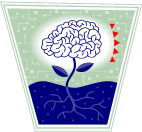 Studies have shown that if you spend a lot of time juggling or playing a musical instrument the parts of your brain that supports these activities grows bigger. London taxi cab drivers that spend a decade memorizing elaborate routes experience significant brain changes. These facts support a major premise behind this blog namely, we are far more in charge of the shape, size, longevity and performance of our brain than we realize.
Studies have shown that if you spend a lot of time juggling or playing a musical instrument the parts of your brain that supports these activities grows bigger. London taxi cab drivers that spend a decade memorizing elaborate routes experience significant brain changes. These facts support a major premise behind this blog namely, we are far more in charge of the shape, size, longevity and performance of our brain than we realize.
It would stand to reason that people who meditated extensively should have bigger brains. I have found a few studies that that support this idea but there is not enough data for a firm conclusion. In one study:
“Our data suggest that meditation practice can promote cortical plasticity in adults in areas important for cognitive and emotional processing and well-being,” says Sara Lazar, leader of the study and a psychologist at Harvard Medical School. “
In a second study:
“Using MRI scans the scientists show that there was “significantly larger cerebral measurements in mediators”.
No matter, even if mediation does not grow your brain there have been studies that demonstrate improved clarity of thinking, enhance self-control, reduced stress and self-reported well being. As such it is an important option for improving cognitive performance and will be a frequent topic on the Next Brain Blog.
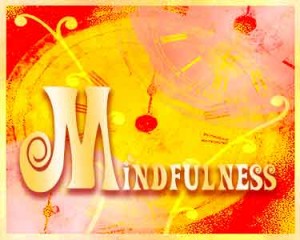 Buddhist insight mediation that advocates focusing on sensation rather than our thoughts of sensation seems to produce results. It is similar to the more modern movement of mindful mediation that focuses on “being in the moment”. Finally, there is a third, non-mediative approach to mindfulness that we will explore. It is based on the contemporary work of Ellen Langer and seeks to achieve a heightened state of situational awareness of conscious control over thoughts and actions. Insight mediation, mindful mediation and cognitive mindfulness.
Buddhist insight mediation that advocates focusing on sensation rather than our thoughts of sensation seems to produce results. It is similar to the more modern movement of mindful mediation that focuses on “being in the moment”. Finally, there is a third, non-mediative approach to mindfulness that we will explore. It is based on the contemporary work of Ellen Langer and seeks to achieve a heightened state of situational awareness of conscious control over thoughts and actions. Insight mediation, mindful mediation and cognitive mindfulness.
If you are interested in giving it a try I suggestion action over reading. Try this simple five-step experiment in mindful meditation.
Source: Mindfulness Image
Categories: Ancient Ways, IQ and EQ, Manage Emotions, Mental Focus, Training Tags: Buddhist, meditation, mindfulness
Measure Your EQ & Build Emotional Intelligence
Over the last two decades we have done the science to know that being smart about emotions is the key to life success. A common sense conclusion for many but with the science we now have the tools for systematically getting better at it.
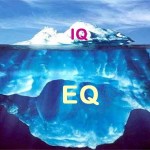 Some argued that your emotional quotient (EQ) is more important than your intelligence quotient (IQ) when it come to achieving success. Emotional smarts over book smarts. This is true because emotions play a critical role in learning, problem solving, decision making, creativity, collaborating and many other brain-heavy activities. So it should be no surprise that being smart about emotions – being able to spot them, harness them to positive outcomes and even generate them on demand – is a cornerstone for success.
Some argued that your emotional quotient (EQ) is more important than your intelligence quotient (IQ) when it come to achieving success. Emotional smarts over book smarts. This is true because emotions play a critical role in learning, problem solving, decision making, creativity, collaborating and many other brain-heavy activities. So it should be no surprise that being smart about emotions – being able to spot them, harness them to positive outcomes and even generate them on demand – is a cornerstone for success.
Focusing on EQ and strengthening emotional intelligence is key to developing YourNextBrain! It will be a frequent topic on this blog. To get started check out the post from Psychology Today on Emotional Intelligence. They provide a crisp definition:
“Emotional intelligence is the ability to identify and manage your own emotions and the emotions of others. It is generally said to include three skills:
 emotional awareness, including the ability to identify your own emotions and those of others;
emotional awareness, including the ability to identify your own emotions and those of others;- the ability to harness emotions and apply them to tasks like thinking and problems solving;
- the ability to manage emotions, including the ability to regulate your own emotions, and the ability to cheer up or calm down another person.”
As well as links to many great overview articles.
If you are considering building up your emotional intelligence I suggest you start by measuring it:
- Quick Measure (17 questions and 10 minutes)
- In Depth Measure (106 questions and 30 minutes)
Please share what you learn about your EQ and experiences you have had in improving it.
Categories: IQ and EQ, Manage Emotions Tags: emotion, EQ

